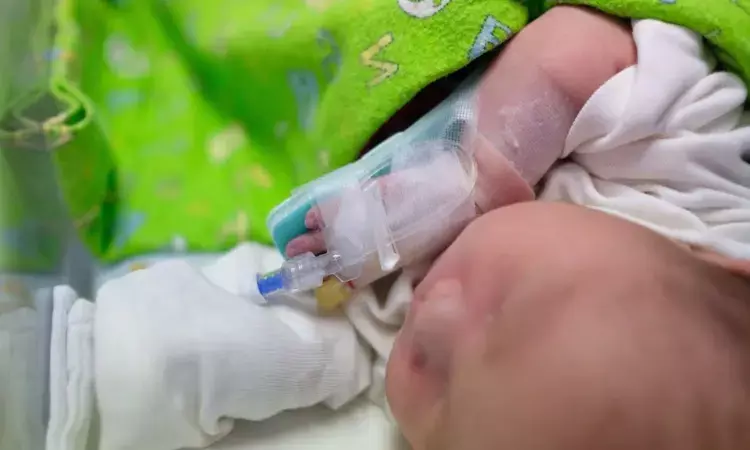- Home
- Medical news & Guidelines
- Anesthesiology
- Cardiology and CTVS
- Critical Care
- Dentistry
- Dermatology
- Diabetes and Endocrinology
- ENT
- Gastroenterology
- Medicine
- Nephrology
- Neurology
- Obstretics-Gynaecology
- Oncology
- Ophthalmology
- Orthopaedics
- Pediatrics-Neonatology
- Psychiatry
- Pulmonology
- Radiology
- Surgery
- Urology
- Laboratory Medicine
- Diet
- Nursing
- Paramedical
- Physiotherapy
- Health news
- Fact Check
- Bone Health Fact Check
- Brain Health Fact Check
- Cancer Related Fact Check
- Child Care Fact Check
- Dental and oral health fact check
- Diabetes and metabolic health fact check
- Diet and Nutrition Fact Check
- Eye and ENT Care Fact Check
- Fitness fact check
- Gut health fact check
- Heart health fact check
- Kidney health fact check
- Medical education fact check
- Men's health fact check
- Respiratory fact check
- Skin and hair care fact check
- Vaccine and Immunization fact check
- Women's health fact check
- AYUSH
- State News
- Andaman and Nicobar Islands
- Andhra Pradesh
- Arunachal Pradesh
- Assam
- Bihar
- Chandigarh
- Chattisgarh
- Dadra and Nagar Haveli
- Daman and Diu
- Delhi
- Goa
- Gujarat
- Haryana
- Himachal Pradesh
- Jammu & Kashmir
- Jharkhand
- Karnataka
- Kerala
- Ladakh
- Lakshadweep
- Madhya Pradesh
- Maharashtra
- Manipur
- Meghalaya
- Mizoram
- Nagaland
- Odisha
- Puducherry
- Punjab
- Rajasthan
- Sikkim
- Tamil Nadu
- Telangana
- Tripura
- Uttar Pradesh
- Uttrakhand
- West Bengal
- Medical Education
- Industry
Extra parenteral amino acids not beneficial for extremely preterm infants: NEJM

New Zealand: Extra parenteral amino acids for five days after birth in infants with extremely low birth weight is not tied to survival free from neurodisability at two years, research published in the NEJM (New England Journal of Medicine) has found.
To clarify whether higher parenteral amino acid intake improves results in infants with extremely low birth weight, Frank H. Bloomfield and colleagues from New Zealand conducted a double-blind, parallel-group, multicenter, randomized, placebo-controlled trial.
The researchers enrolled 434 infants having birth weights of less than 1000 g at eight neonatal intensive care units. They were either assigned to the intervention group (n=217), in which the infants were given amino acids at 1 g per day dose or a placebo (n=217) combined with the usual nutrition for the first five days following the birth.
Survival free from neuro disability (primary outcome) was assessed with the neurologic examination and Bayley Scales of Infant and Toddler Development at two years and corrected for gestational age at birth. Secondary outcomes included the components of the primary outcome, the presence or absence of neonatal disorders, nutritional intake, and growth rate.
The study led to the following findings:
- In 47.8% of children in the intervention group, the researchers observed survival free from neurodisability and in the placebo group, 49.8% (adjusted relative risk, 0.95).
- Death before two years of age occurred in 18.0% of children in the intervention group and 19.4% in the placebo group; neurodisability occurred in 40.9% in the intervention group and 37.4% in the placebo group (adjusted relative risk, 1.16).
- Neurodisability was moderate to severe in 16.5% of children in the intervention group and 8.6% in the placebo group (adjusted relative risk, 1.95).
- More children in the intervention group had patent ductus arteriosus than in the placebo group (adjusted relative risk, 1.65).
- In a post hoc analysis, refeeding syndrome happened in 42 of 172 children in the intervention group and 26 of 166 in the placebo group (adjusted relative risk, 1.64).
- Eight serious adverse events occurred.
"In the placebo group, amino acid intake fell within the range of the most recent recommendation of 2.5 to 3.5 g per kg per day," the authors wrote. "Our results support these recommendations and suggest intake levels higher than this are not required to support growth and may have harmful effects on neurodevelopment."
Reference:
Bloomfield FH, Jiang Y, Harding JE, Crowther CA, Cormack BE; ProVIDe Trial Group. Early Amino Acids in Extremely Preterm Infants and Neurodisability at 2 Years. N Engl J Med. 2022 Nov 3;387(18):1661-1672. doi: 10.1056/NEJMoa2204886. PMID: 36322845.
Dr Kamal Kant Kohli-MBBS, DTCD- a chest specialist with more than 30 years of practice and a flair for writing clinical articles, Dr Kamal Kant Kohli joined Medical Dialogues as a Chief Editor of Medical News. Besides writing articles, as an editor, he proofreads and verifies all the medical content published on Medical Dialogues including those coming from journals, studies,medical conferences,guidelines etc. Email: drkohli@medicaldialogues.in. Contact no. 011-43720751


